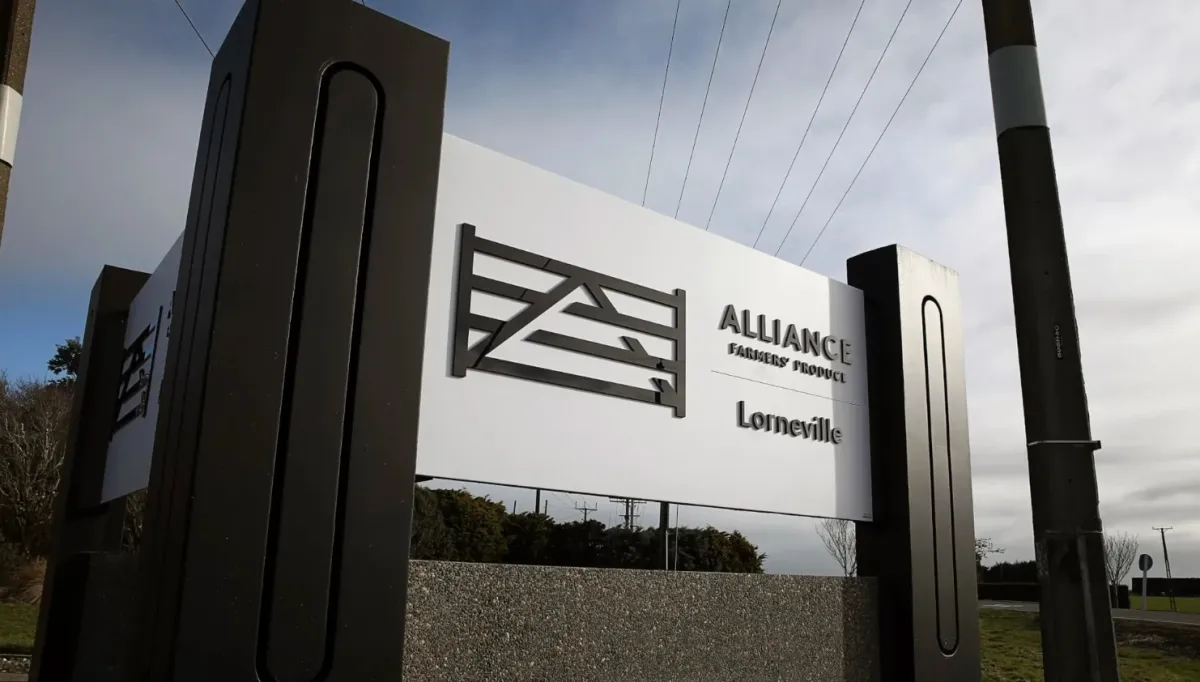Alliance Group today announced a loss after tax of $95.8 million for the year ending 30 September 2024 (FY2023 $70.1m loss) on a turnover of $1.8 billion (FY2023 $2b).
The loss includes one-off post-tax costs of $48.2m in relation to business restructuring costs and other one-off adjustments, including the costs associated with plant rationalisation and redundancies following the closure of the company’s Smithfield plant in Timaru.
This means that Alliance’s underlying financial result is a $47.6m loss after tax.
“This is a disappointing financial result for Alliance and reflects the tough global trading conditions especially for lamb, which accounts for a high proportion of our portfolio,” says Mark Wynne, Chair of Alliance Group.
“In response, Alliance launched a comprehensive reset designed to lift the performance of the company. We have worked hard to build the company’s financial resilience, significantly reduced costs, rationalised our processing capacity, improved our offering to farmers and invested in technology.
“The decisive steps we have taken means we have now turned a corner on a tough two years. We’re leaner, more agile and ready to ride the upturn in global red meat pricing. We have seen positive signs in the past few months and we are now forecasting a return to profitability in the current financial year.”
The decline in shareholder equity in recent years and the ongoing global market uncertainty meant Alliance had to make the tough but necessary decision to strengthen its balance sheet with capital from farmer-shareholders, said Mr Wynne.
“We understand the burden of asking our farmers to reinvest in difficult circumstances and we pulled every available lever, including reducing inventory, accelerating global market payments, and cutting operational costs, to ease the pressure.”
The company has appointed Craigs Investment Partners to explore external capital-raising options.
“While we are at the very early stages of the process, we’ve seen encouraging interest from both international and domestic parties, but for reasons of commercial sensitivity, we will not comment on specific opportunities.
“We will be assessing any external opportunities based on strategic fit, value and expected benefits for the company and our shareholders before making any decisions. Ultimately, the final decision will rest with our farmer-shareholders.”
Willie Wiese, Chief Executive of Alliance, said the company worked hard to improve its offering to farmers as part of a programme to rebuild trust and confidence.
“Enhancing the value we deliver to our farmers has been a key focus of our reset this year. We introduced a more equitable livestock pricing schedule, reshaped our loyalty programme and committed over time to bring in a simplified ‘all-in’ processing sheet.”
The company made significant progress on key technology projects, including its Enterprise Resource Planning (ERP) programme.
“Our Finished Goods Warehousing project has modernised our inventory management and the order-to-cash process, reduced business risk and increased cash velocity through faster inventory turnover and cash collection.
“We also rolled out our Meat Eating Quality (MEQ) programme across our plant network. Powered by cutting-edge artificial intelligence, this technology measures intramuscular fat (IMF) levels in lamb and marbling percentages in beef, providing real-time data on eating quality.
“This data is offering our farmers valuable insights to inform breeding and feeding programmes, leading to more sustainable livestock management and consistent quantifiable meat quality for our customers.”
Global markets remained exceptionally challenging with prices remaining weaker as consumers continued to keep a tight rein on spending in the face of the cost-of-living crisis, said Mr Wiese.
“Sales value and volume to the Chinese market nearly halved this past financial year. While China had been our largest market, we used this opportunity to develop significant commercial alternatives, making solid progress in establishing more stable and consistent markets outside of China.
“Although global markets remain tough, we saw steady demand growth throughout the year, with prices gradually climbing. Beef has been trading strongly above its five-year average price, driven by the drought in the United States. After two years of downward pressure on pricing, lamb now appears to be coming off the bottom of the price cycle.
“Alliance has become a more agile and leaner company, better positioned to capture greater market value and deliver stronger returns to our farmer-shareholders.”
Alliance’s Annual Meeting will be held in Gore on 18 December 2024.


